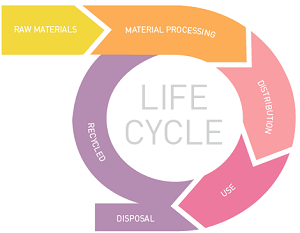|
The results from the 3rd SUN annual meeting showed great advancement of the project.

The meeting was held in Edinburgh, Scotland, UK on 4-5 October 2016 where the project partners presented the results obtained during the second reporting period of the project.
SUN is a three and a half year EU project, running from 2013 to 2017, with a budget of about €14 million. Its main goal is to evaluate the risks along the supply chain of engineered nanomaterials and incorporate the results into tools and guidelines for sustainable manufacturing.
The ultimate goal of the SUN Project is the development of an online software Decision Support System – SUNDS - aimed at estimating and managing occupational, consumer, environmental and public health risks from nanomaterials in real industrial products along their lifecycles.
The SUNDS beta prototype has been released last October, 2015, and since then the main focus has been on refining the methodologies and testing them on selected case studies i.e. nano-copper oxide based wood preserving paint and nano- sized colourants for plastic car part: organic pigment and carbon black.
Obtained results and open issues were discussed during the third annual meeting in order collect feedbacks from the consortium that will inform, in the next months, the implementation of the final version of the SUNDS software system, due by March 2017.
Significant interest has been payed towards the results obtained in WP2 (Lifecycle Thinking) which main objectives are to assess the environmental impacts arising from each life cycle stage of the SUN case studies (i.e. Nano-WC-Cobalt (Tungsten Carbide-cobalt) sintered ceramics, Nanocopper wood preservatives, Carbon Nano Tube (CNT) in plastics, Silicon Dioxide (SiO2) as food additive, Nano-Titanium Dioxide (TiO2) air filter system, Organic pigment in plastics and Nanosilver (Ag) in textiles), and compare them to conventional products with similar uses and functionality, in order to develop and validate criteria and guiding principles for green nano-manufacturing.
Specifically, the consortium partner COLOROBBIA CONSULTING S.r.l. expressed its willingness to exploit the results obtained from the life cycle assessment analysis related to nanoTiO2 in their industrial applications.
On 6th October, the discussions about the SUNDS advancement continued during a Stakeholder Workshop, where representatives from industry, regulatory and insurance sectors shared their feedback on the use of the decision support system. The recommendations collected during the workshop will be used for the further refinement and implemented in the final version of the software which will be released by March 2017.
To find out more about the SUN project, go to www.sun-fp7.eu
|